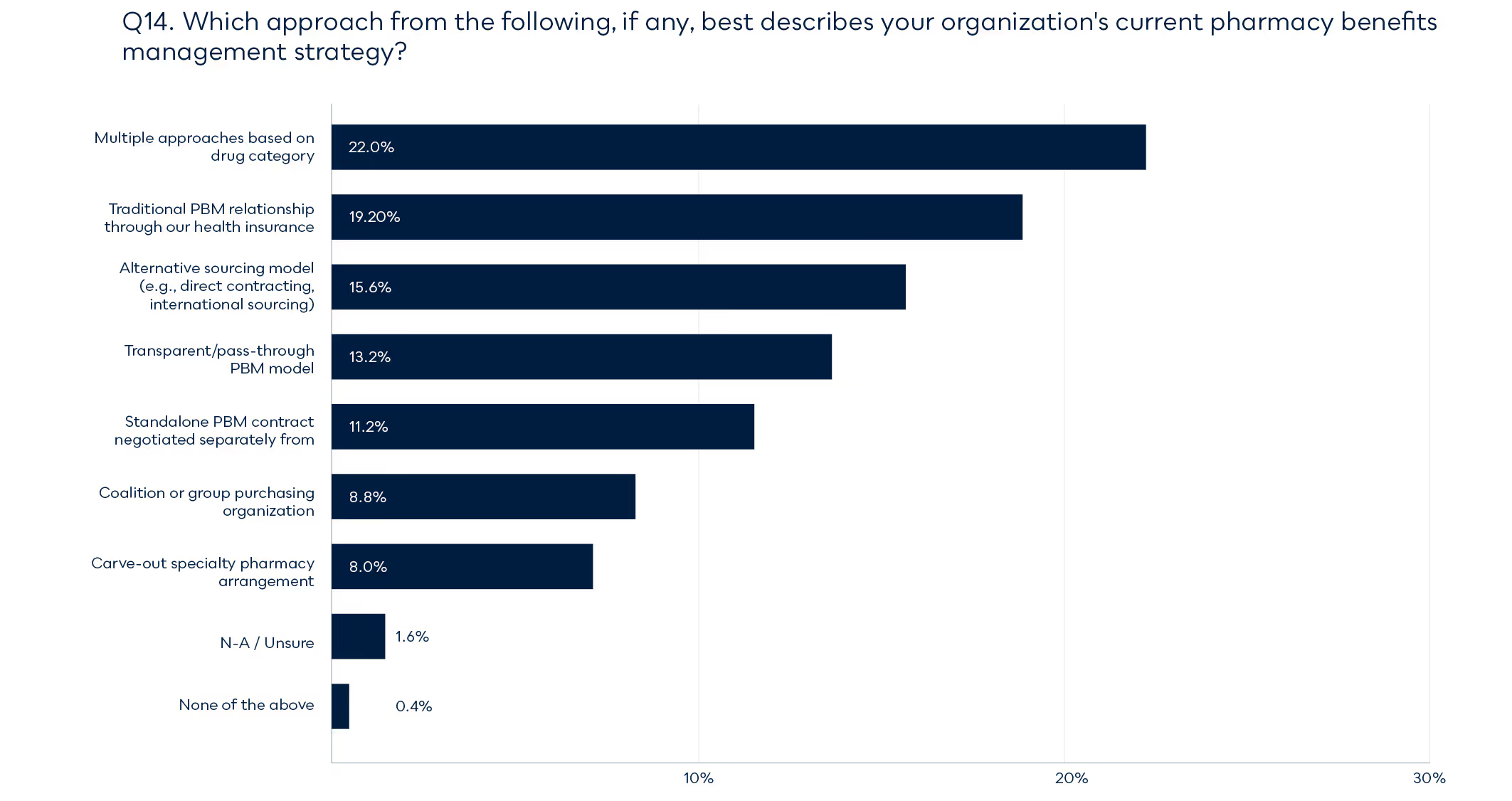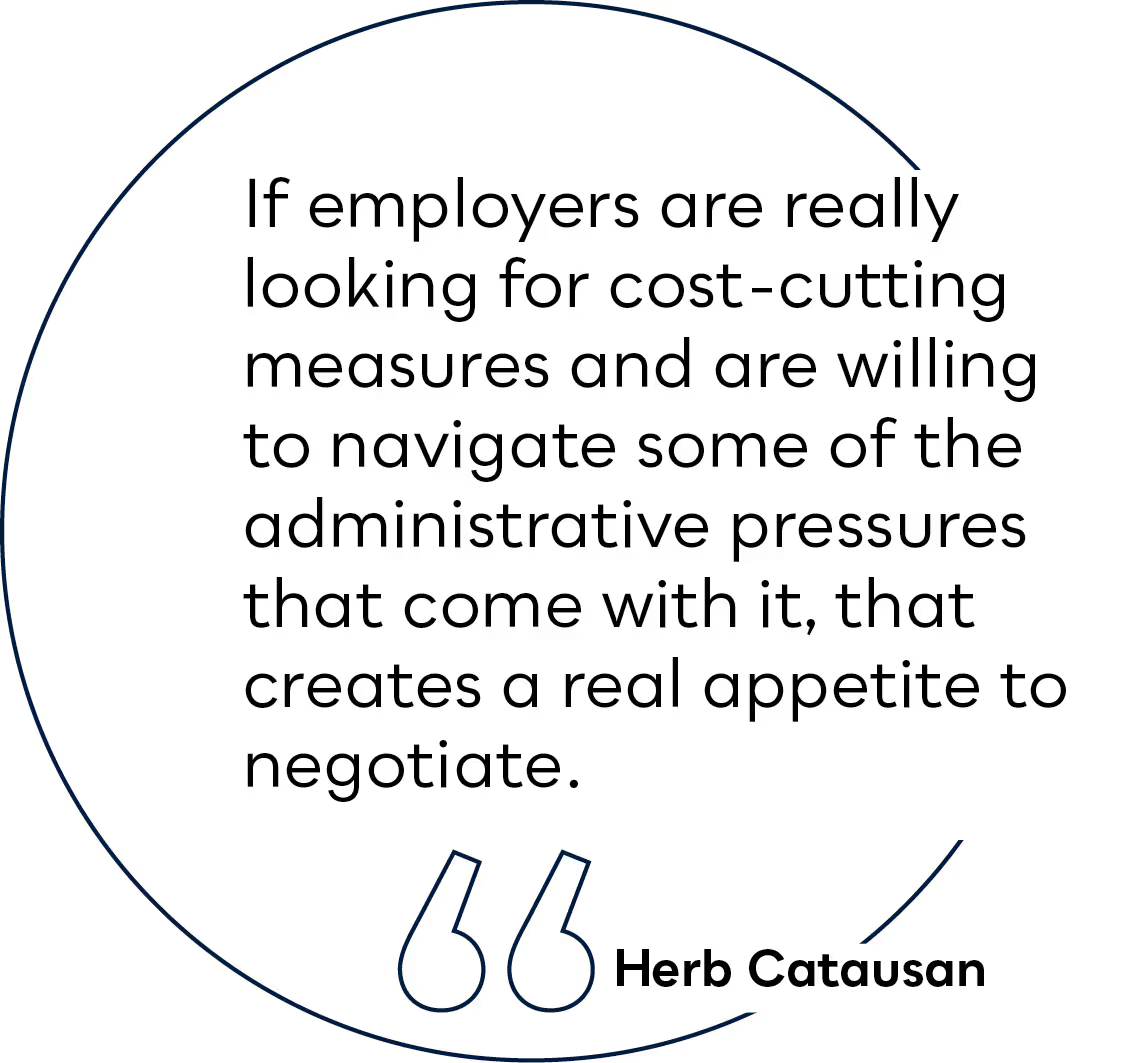Innovating through economic uncertainty
2025 Voice of the Benefits Leader Report
The survey illustrates a healthcare benefits industry at a critical inflection point.
Healthcare benefits leaders are navigating an unprecedented transformation driven by economic pressures, evolving employee expectations, and technological advancement.
This comprehensive survey of 250 industry professionals reveals organizations moving beyond traditional cost-shifting strategies toward sophisticated approaches that balance financial sustainability with competitive talent positioning. The findings illuminate how forward-thinking leaders are reimagining healthcare benefits as strategic differentiators while preparing for fundamental changes that will reshape the industry landscape over the coming decade.
Download the 2025 Voice of the Benefits Buyer Report for the full dataset and insights
Healthcare budget allocation increases due to tariff changes
Nearly 92% of organizations are bracing for healthcare cost increases, with over two-thirds expecting moderate to significant budget impacts. This suggests tariff changes are creating substantial downstream pressure on healthcare costs, likely through increased costs of medical devices, pharmaceuticals, and healthcare supplies.
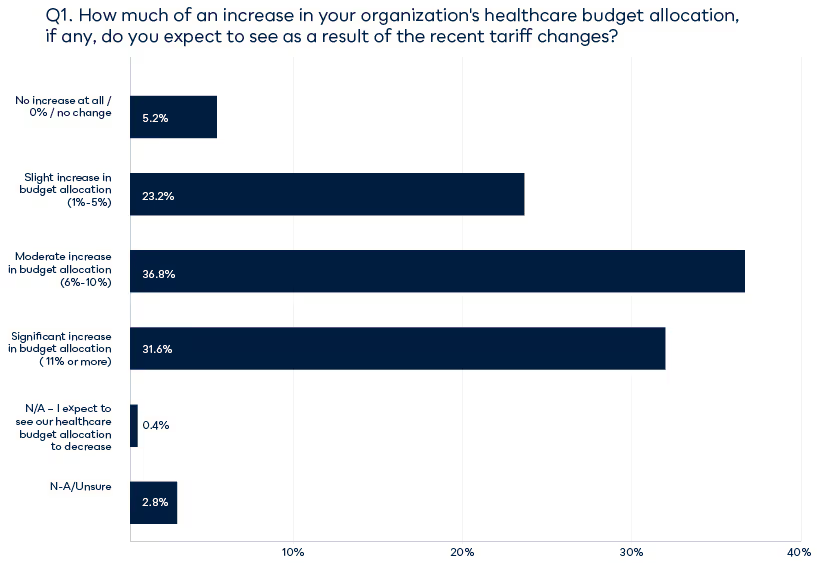
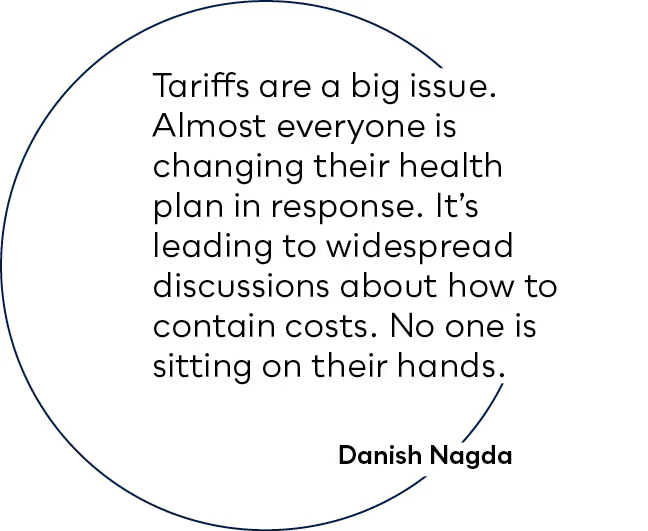
Utilization of healthcare point solutions
Point solutions represent a growing trend in healthcare benefits management, allowing organizations to address specific pain points with targeted technologies rather than relying solely on traditional, comprehensive health plans.
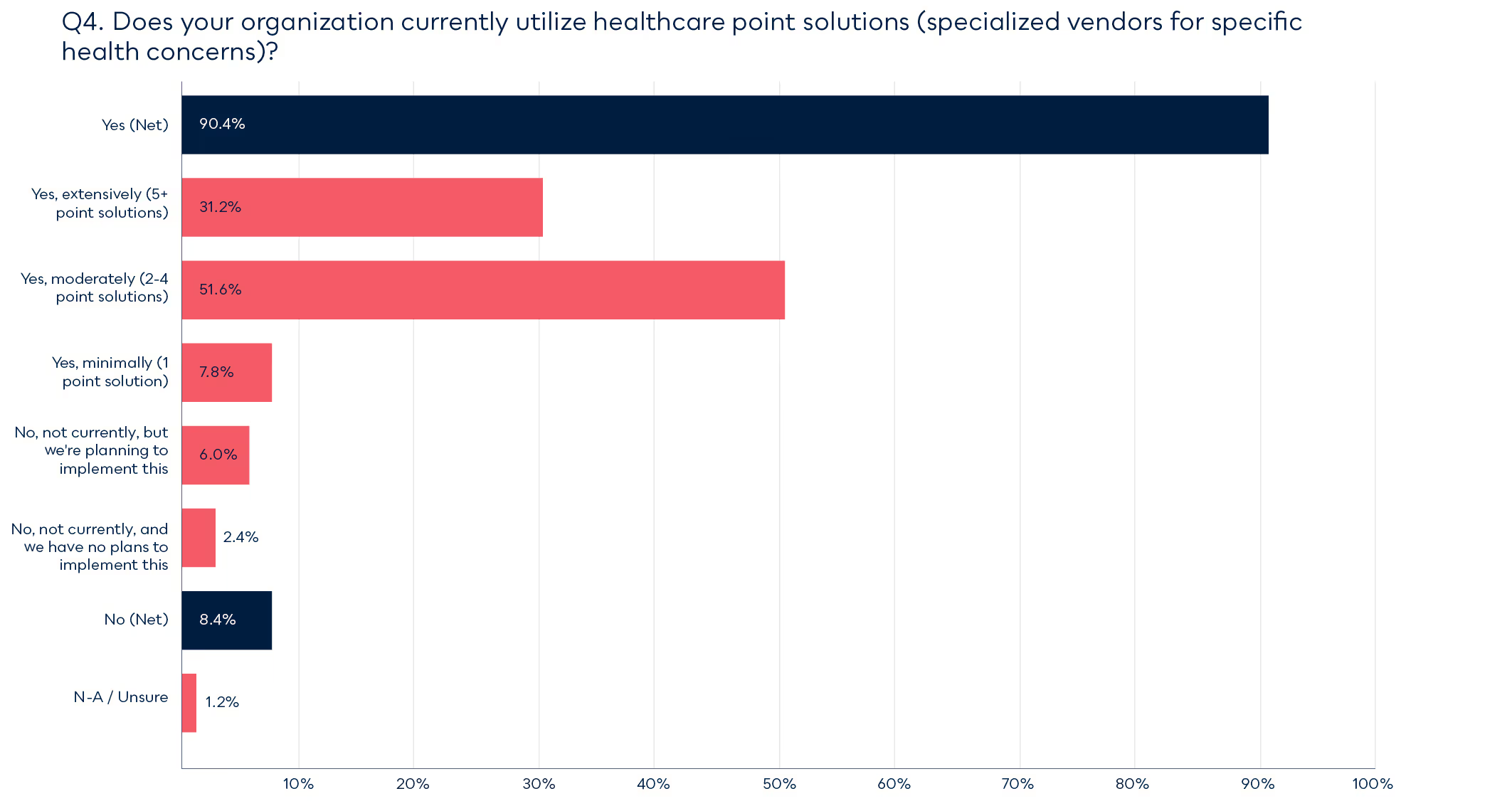

Download the 2025 Voice of the Benefits Buyer Report for the full dataset and insights
Measuring employee experience in health and wellness
The focus on employee experience measurement indicates a shift from purely cost-focused benefits management to a more holistic approach that considers employee satisfaction and engagement as key performance indicators.
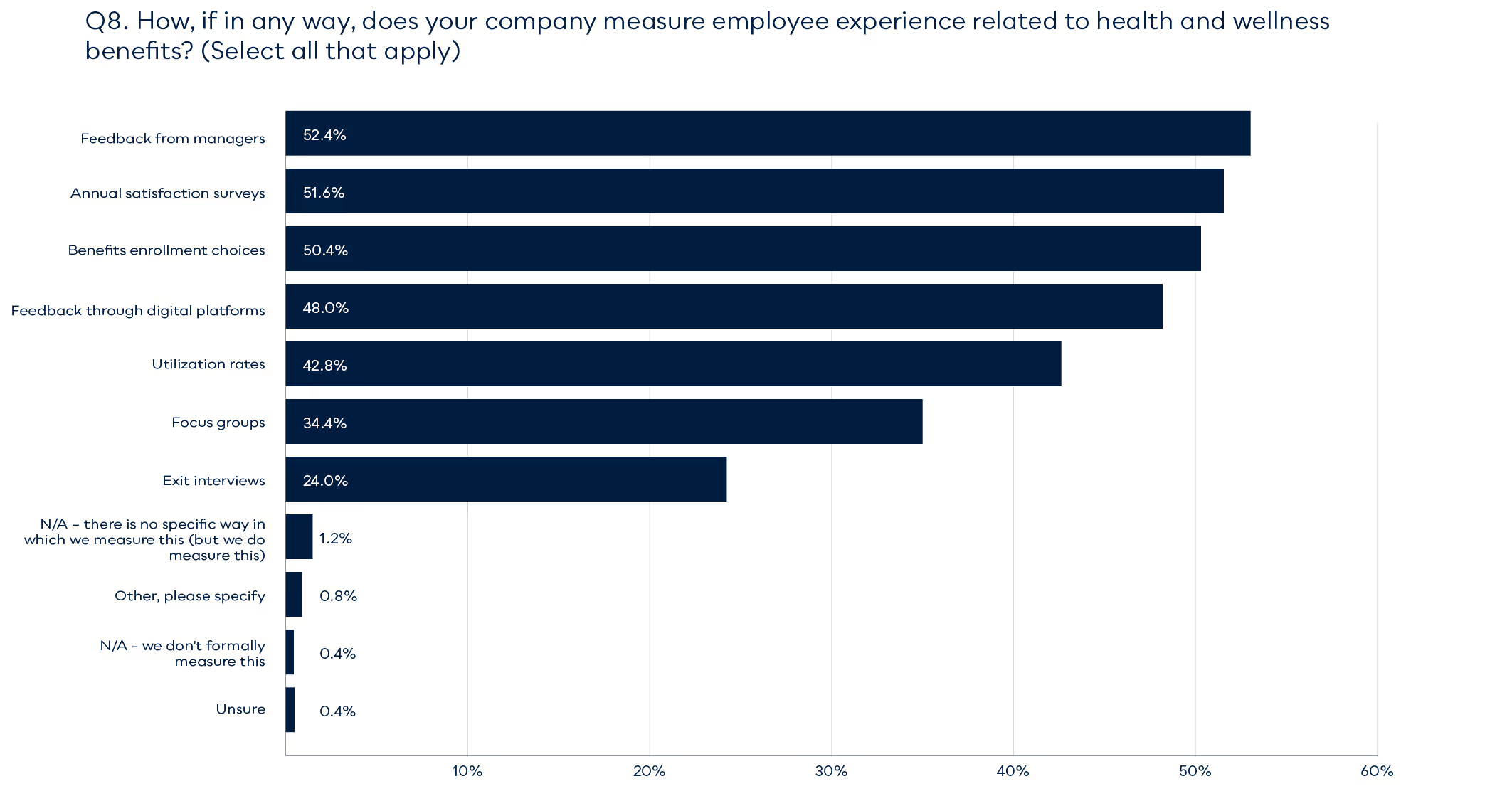
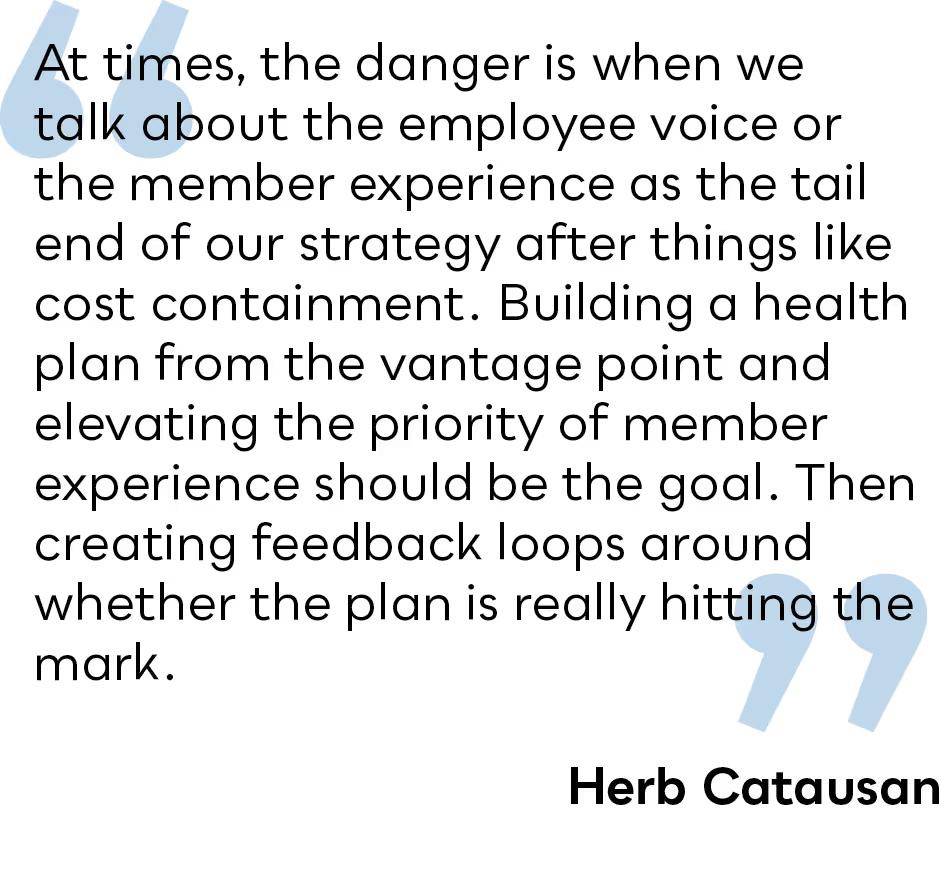
Top objectives for health plan design
The range of potential objectives likely includes cost management, employee satisfaction, health outcomes, compliance, and competitive positioning, reflecting the multi-faceted nature of health plan design decisions.
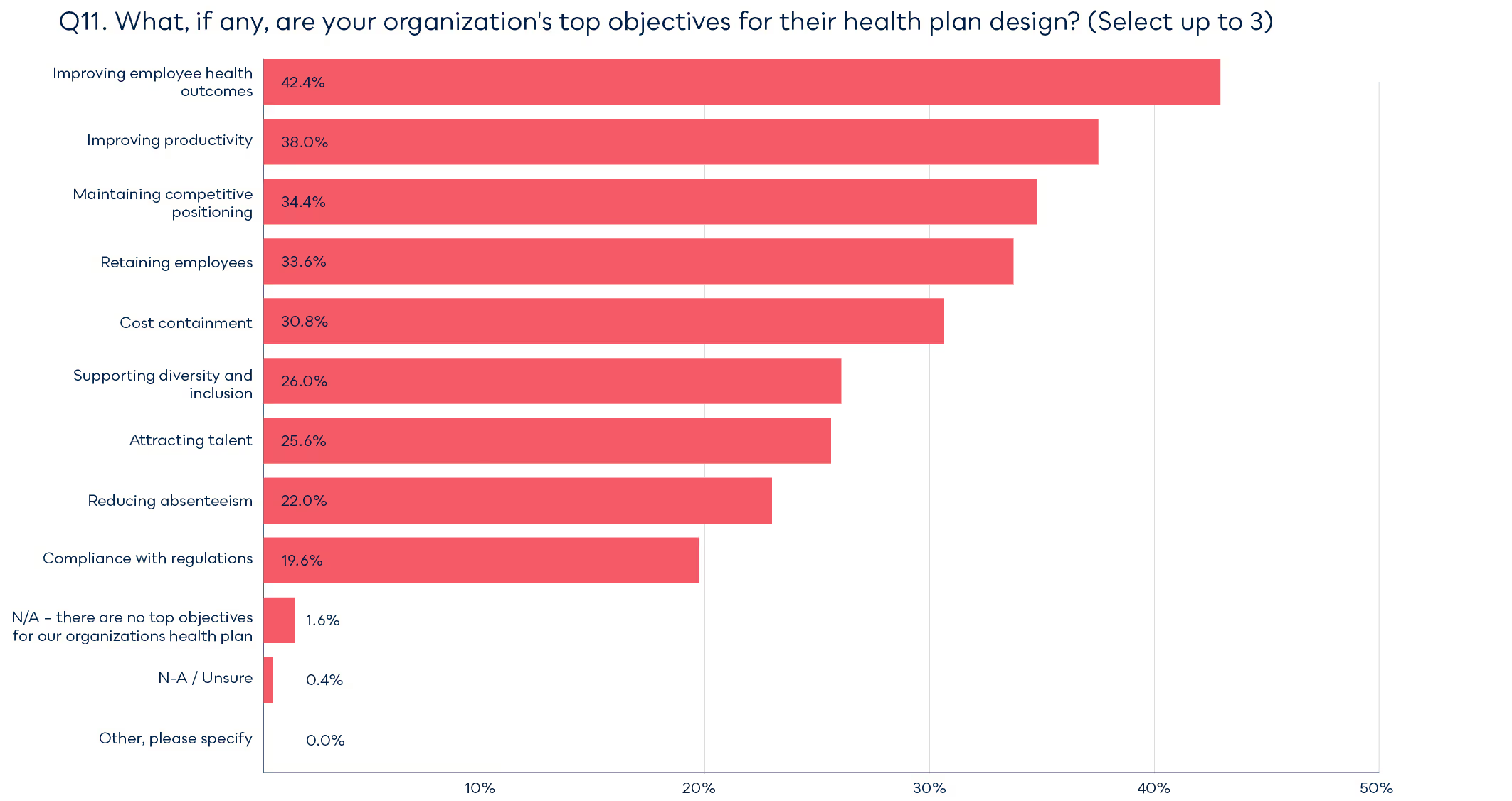

Current approach to pharmacy benefits strategy
The existence of distinct strategic approaches suggests that there is no one-size-fits-all solution in healthcare benefits management, with different organizations adopting varied strategies based on their specific circumstances and priorities.
